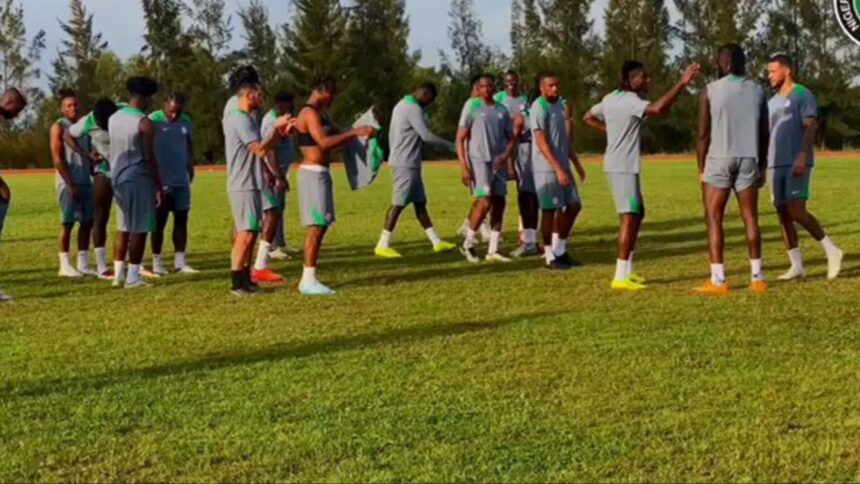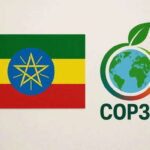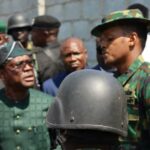Nigeria’s preparations for their high-stakes 2026 FIFA World Cup play-off against Gabon have plunged into crisis as the Super Eagles boycott training over unpaid allowances and bonuses.
With the crucial fixture just days away, the entire squad and technical staff refused to participate in Tuesday’s session in Rabat, Morocco, demanding a swift resolution to long-standing financial grievances with the Nigeria Football Federation (NFF).
The squad, along with officials, withheld their participation in protest, citing outstanding allowances dating back to 2019 for achievements including reaching the 2025 Africa Cup of Nations and qualifying for the World Cup play-offs.
The situation was first reported by a BBC Sports journalist, Oluwashina Okeleji.
Okeleji reported on X that the players and staff were “awaiting a quick resolution to continue preparation for Thursday’s game.”
He added that none of the Super Eagles players had received their allocated bonuses, describing the situation as “tired of empty promises.”
Attached to the post was a statement reportedly signed by the squad and technical crew, which read in full, “The full squad, including officials, withheld from training today in Morocco because of unresolved issues with outstanding payments.
“The Super Eagles are awaiting a quick resolution to continue preparation for Thursday’s game with Gabon. Thank you. From the players.”
The decision of the Super Eagles to boycott training was further confirmed by sports photojournalist Sulaimon Adebayo, who is covering the team’s camp in Morocco.
Also, captain William Troost-Ekong announced that the decision of the Super Eagles to boycott training was due to unpaid bonuses.
Troost-Ekong, who took to his official X handle, also dismissed reports that the players were demanding special bonuses.
He said: “Once a resolution is found, we will be the first to confirm.
“Any other statement/claim or eSPECIALly demands other than the rightful request written about below is FALSE.
“All we want and continue to do is focus on the big games ahead.”
Pan-Atlantic Kompass reports that the squad currently in Morocco consists of 23 players, including captain William Troost-Ekong; forwards Victor Osimhen, Ademola Lookman, Moses Simon, Chidera Ejuke, Alex Iwobi, Samuel Chukwueze, and Akor Adams; defenders Calvin Bassey, Chidozie Awaziem, Benjamin Frederick, Semi Ajayi, Zaidu Sanusi, Amas Obasogie, and Stanley Nwabali; and midfielders Wilfred Ndidi, Frank Onyeka, Raphael Onyedika, Alhassan Yusuf, Tolu Arokodare, Olakunle Olusegun, and Bright Osayi-Samuel.
Goalkeeper Maduka Okoye, who recently regained form in Serie A with Udinese, is the only player yet to join the camp.
Meanwhile, Nigerians have begun to react after the Super Eagles decided to boycott training.
Fans lamented the ill-timed dispute, describing it as a chronic issue of poor sports administration in the country. Many Nigerians expressed frustration, pointing out the irony of the financial crisis emerging just as the team is focused on securing a path to the expanded 2026 World Cup co-hosted by the US, Canada, and Mexico.
Reacting, the 2023 presidential candidate of the Labour Party, Peter Obi, said: “It is truly unfortunate that our Super Eagles, who consistently give their best in representing our dear nation, are being owed their allowances.
“We always seem to find money to waste on needless lavish spending and political patronage, yet we cannot pay those who patriotically raise our flag, bring us pride, and serve with dedication. That is what is found in a “now disgraced country”.
“When those who serve their country are not treated with dignity, it sends the wrong message to our youth, that hard work and service are not rewarded. Those who represent Nigeria deserve to be paid promptly and treated with respect.
We must do better.”
Below are some other reactions;





